Dumping gray water while dispersed camping is a NO-NO. Or then again, is it?
Most State and federal laws are pretty clear that you can’t just dump gray water wherever you like. However, the Bureau of Land Management takes a looser stance.
Many RV’ers frown on dumping your gray water. So is it allowed to dump grey water on the ground? And if so, should you do it? If you have these same questions, keep reading to learn all about what to do with your gray water.
What is Gray Water?
Let’s clearly define gray water. An RV’s gray tank holds any and all water that doesn’t go into your toilet. This includes water from your kitchen sink, shower, and bathroom sink. It’s clean, used water, but it contains some food particles and soap residues.
Water used for washing your hands, brushing your teeth, showering, cleaning dishes or other similar tasks becomes gray water. It goes right into your gray tank.
While gray water is obviously more clean than black water, it may still have a smell associated with it. As food particles break down, they emit unpleasant odors. Many RV’ers use a gray tank additive to keep these smells down.
While this practice keeps your gray water tank smelling better, the chemicals strengthen the need to dispose of this water in an approved dump station.
Does Gray Water negatively impact the environment?
I’m in the habit of tossing soapy dish water out the back door of our truck camper. It’s easy for me to think that this small amount of water doesn’t hurt anything. But soaps, food particles, and tank additives can and do negatively impact the environment.
Food particles, especially, may attract small animals to your campsite. The bits of food have likely soaked up dish detergent, and then when those cute little chipmunks ingest it, problems arise.
Impacts on soil and water sources
Not only can wildlife be affected by dumping gray water while dispersed camping, but soil erosion may occur as well. If you’re in an area that allows dumping of gray water, remember to spread the water over a large area of land.
Do not create a point of erosion. RV tanks can hold up to 35 gallons, and some RVs have multiple tanks. So releasing that much water in one area will likely damage the soil and plant life.
Is Dumping Gray water on the Ground illegal?
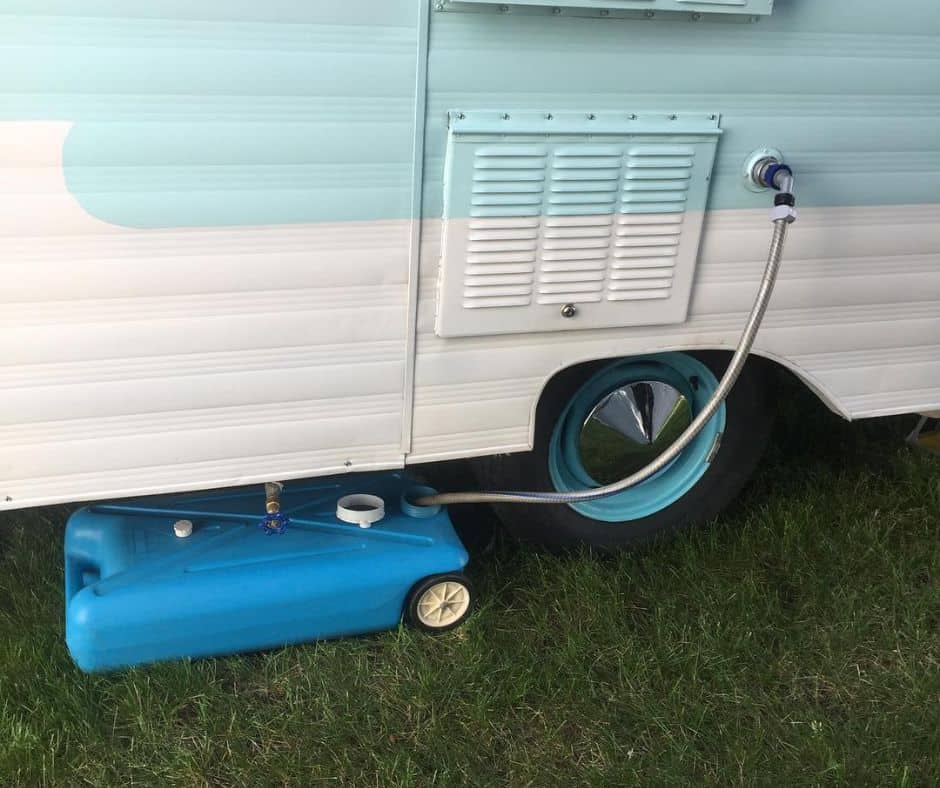
The US Forest Service, Bureau of Reclamation, Army Corps of Engineers, and National Park Service all have rules making it illegal to dump black and gray water on public lands. Specific locations may have more sensitive ecologies, which is the main reason there’s not a one-size fits all answer.
The Army Corps of Engineers deals mainly with lakes, streams, and rivers. So naturally, they have concerns about any contaminants in natural waters and disallow the dumping of gray water.
The National Park Service manages land throughout the country but mainly limits camping to designated campgrounds. Understandably, all campgrounds have their own rules depending on the local environment, and none allow the dumping of gray water.
While the US Forest Service does allow dispersed camping, it’s best to check the rules for each area before heading out on your adventure. I was able to find one flier from the White Mountain Ranger Station that says dumping gray water is allowed.
GREY WATER
Is old dishwater, which should not be dumped just anywhere. To wash yourself or your dishes, carry water 200 feet away from streams or lakes and use small amounts of biodegradable soap. Scatter strained dishwater
In the backcountry be sure to dump gray water away from any fresh water sources and use biodegradable soap. Campgrounds usually have designated areas for dumping gray water.
White Mountain Ranger Station Dispersed Camping
It’s difficult to find the gray water dumping rules for the National Forest Service, so the best policy is simply: don’t do it.
The BLM is the only agency that does not strictly prohibit dumping gray water on the ground. But it does use the term “wash water” to define the type of gray water to dump.
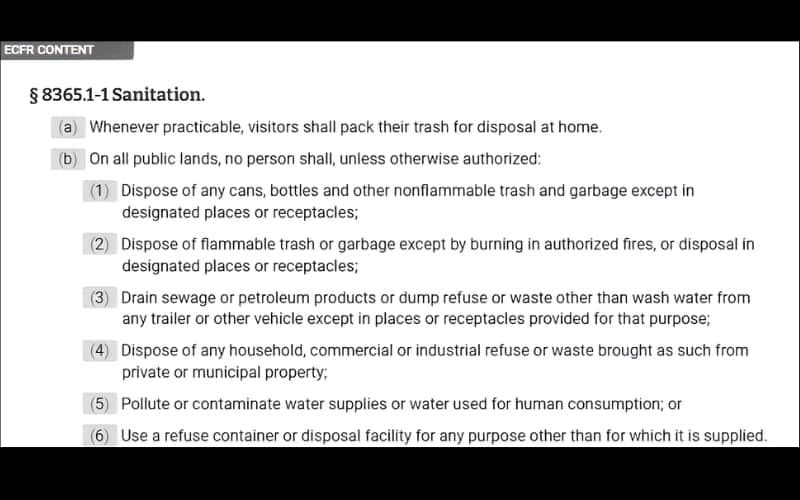
While the BLM doesn’t define that the gray water must be separate from the gray tank, some boondockers believe that the rule is specific to water captured outside of the tank.
For example, water from washing dishes in a bucket is okay to dump, while water that goes down your drain is not okay to dump. Gray water dumping gets argued a lot by RV’ers and was the topic of much discussion at a recent Truck Camper Rally we attended in Quartzsite, Arizona.
However, the BLM does not make the distinction between water in a gray tank or water in a bucket or pan. It simply states that dumping nothing beyond “wash water” is okay.
Established BLM campgrounds, like I described above, do not allow the dumping of gray water. So it’s important to check the specific rules where you decide to camp.
State and Local Laws about RV gray water dumping
State public lands are hugely popular for dispersed camping and boondocking. While the BLM does not strictly prohibit dumping gray water in some areas, local and state laws may supersede that allowance. Be aware of the laws and restrictions where you are.
Don’t assume that because the BLM allows dumping, that the state or local authorities do also. I checked into the rules for some West Coast states where dispersed camping is super popular. Here’s what I found:
1. In Oregon:
General Forest Recreation Rules and Public Conduct, 629-025-0040
- (a) On all State Forest Land, a Person may not in any manner, unless otherwise authorized, cause any rubbish, garbage, refuse, organic or inorganic waste, diseased or dead animals, recreational vehicle sewage, or other offensive matter or any abandoned property or material to be placed or left on State Forest Land. A Person may not:
- (B) Drain sewage or petroleum products or dump refuse or waste other than grey water except in places or receptacles provided for that purpose;
This rule surprises me, as I didn’t think gray water dumping would be allowed at all. I could not find specific dumping regulations for the grey water beyond this simple statement.
2. In Washington:
I searched the Washington State Department of Natural Resources website and did multiple Google searches. I still could find no specific rule regarding dumping gray water.
My inability to easily find the answer actually leads to some of confusion about this topic. So, I still will not be dumping gray water while dispersed camping in Washington. But I couldn’t find documentation either way.
3. In California:
Again, I’m not finding specific RV gray water rules in California. However, the state does have a robust gray water reuse program, wherein the water can be used for landscape irrigation. The rules surrounding the reuse program are significant.
They state that gray water can only be used on the property where it was produced. This leads me to believe that RV gray water dumping is probably not allowed since it’s not produced on private property.
California parks also have huge problems with bears. In fact, last summer, when driving into Yosemite Tuolumne Meadows Campground, I was given a bear information sheet.
When hikers and campers fail to use Leave No Trace Principle, bears, and other wildlife become accustomed to humans as a source of food. Since gray water generally contains food particles, dumping it only increases the dependency on humans, thus aggravating the overall bear issue.
Can You Dump RV Grey Water On Private Property?
All states have laws to prohibit dumping gray water on the ground. However, most of the laws are written for homeowners. They define how many gallons of water can be dispersed at a time and how it is used.
Private property dumping is limited mainly to watering lawns and flower beds. Generally, state laws define the need for drip systems so as not to erode an area by dumping large amounts at once.
Private property owners sometimes install RV dump stations, where the waste water enters the septic or public water systems. This type of system is the only safe way to dispose of waste water. However, gray water can be dispersed onto private property that you yourself own.
If a friend is letting you camp on their property, then don’t be the person who takes advantage of a great situation. Dispose of greywater safely, at a dump station, after your camping trip.
Leave No Trace
We’re firm believers in Leave No Trace principles. So for us, if we pack it in, we pack it out. And that includes gray water.
We don’t dump our gray water tank on public lands. But I toss a pan full of dish water out the back door without thinking twice. Should we, though?
The Leave No Trace principles state simply:
So If we apply these principles in the discussion of dumping gray water while dispersed camping, it helps to clarify the answer for us.
99.9% of the time, gray water should not be dumped on the ground. Even if the laws allow it in the area you’re camping, being a good steward of our environment dictates that we only dump in approved dump stations.
How to safely deal with gray water
The first way to safely deal with gray water is to learn the rules. Being aware of the rules is step one, whether dispersed camping or in a campground. Federal and State Campgrounds generally have the rules posted, so that’s an easy way to know what’s allowed.
It’s increasingly common to see signs at water spigots saying not to use them for washing dishes. I remember camping as a child, and Mom sent us to the communal water spigots with dinner dishes.
We met kids from other camps there, all scrubbing pots and pans while getting to know each other. Today, many campgrounds prohibit the washing of dishes at water spigots.
Some other ways to safely deal with gray water are:
Where To Dispose Of RV Gray Water Legally?
The best alternative for dumping gray water is using an approved RV dump station. Many states offer free dump stations at Rest Areas or in small city parks. We’ve traveled full-time throughout the United States in the past three years and rarely paid for dump stations and water refills.
Check Google maps for “dump stations near me” for a list of service stations that offer the service.
Many truck stops, such as Love’s or Pilot, offer paid dump services. Generally, around $10 per use, these tanks are easy to access for a quick stop.
Most usually require payment and a driver’s license’s drop off before providing the key to the padlock on the dump lid. After unlocking the lid, simply return the key to get your license back.
RV Parks and Campgrounds also often offer dump services. Sometimes a fee is involved, but some campgrounds may offer the service for free.
We’ve found that National Park Campgrounds rarely charge for dumping, even if their website says they do. Rangers or Park Hosts have let us use the facilities at no charge.
Websites and apps are good places to go to learn where to dump RV tanks. Check out Sanidumps.com for starters. It’s a community-driven site where users can add new locations or comment on existing ones. The ioverlander app uses an image of a camper with an arrow pointing down to indicate dump stations easily. App users provide comments to update the statuses of dump stations and camping areas.

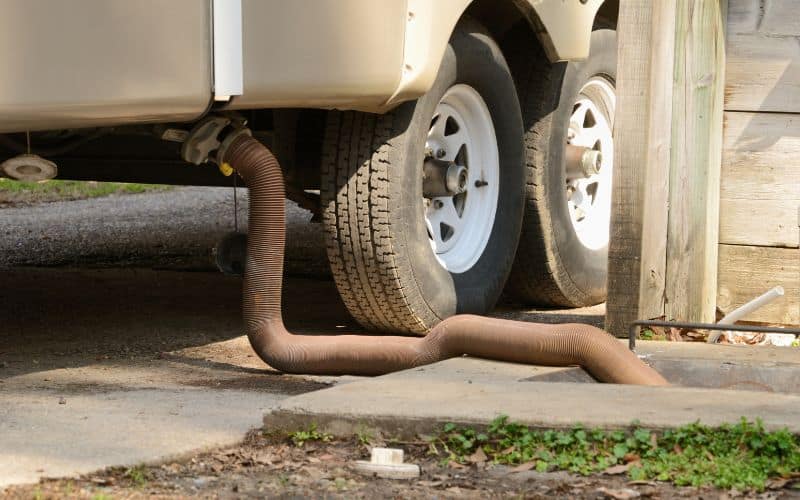
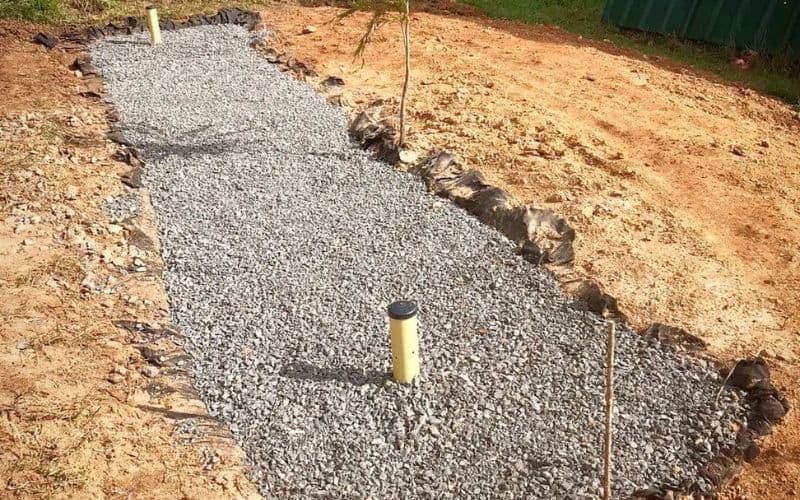
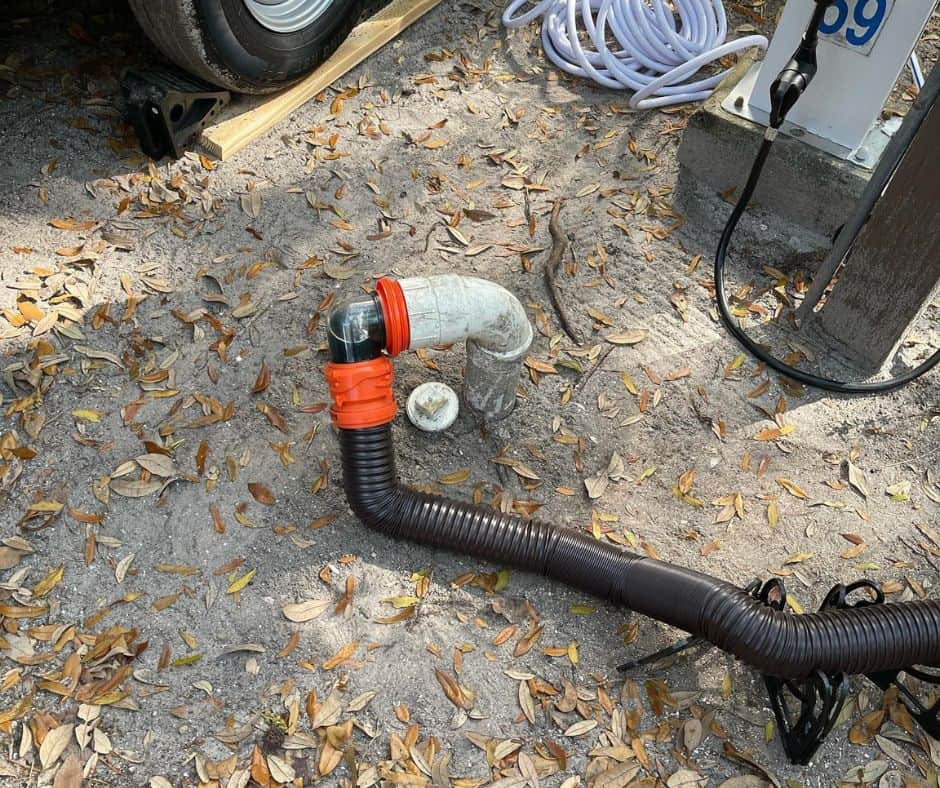
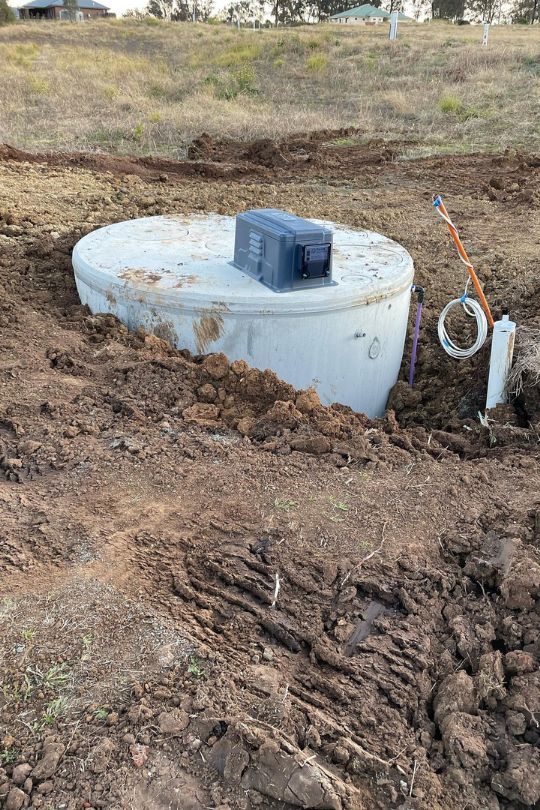
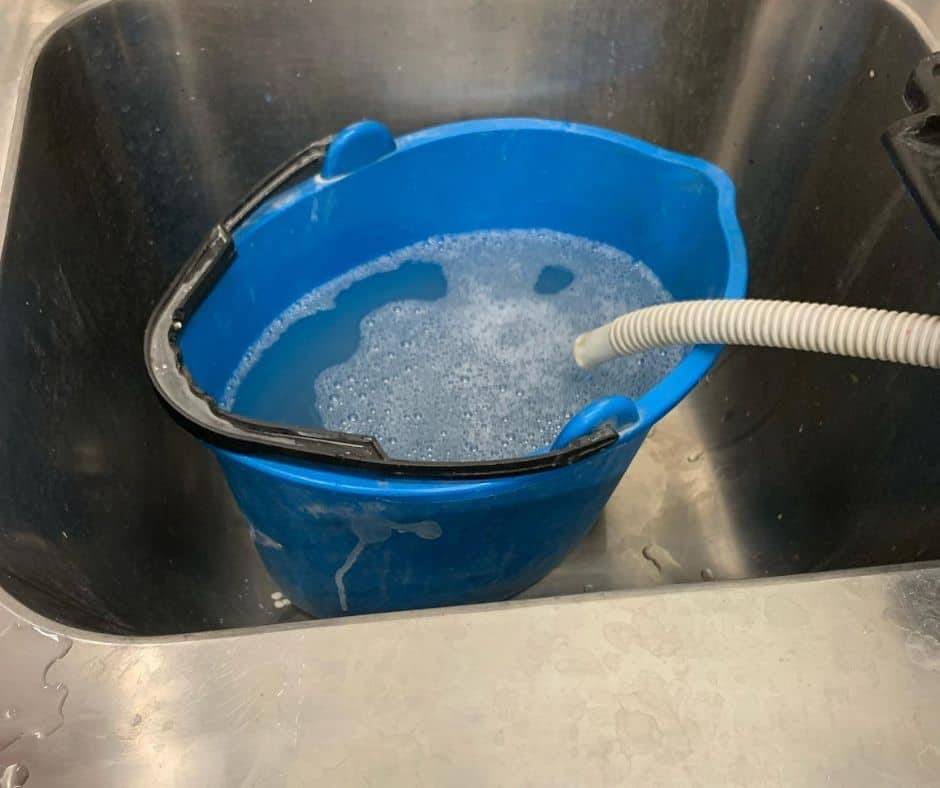


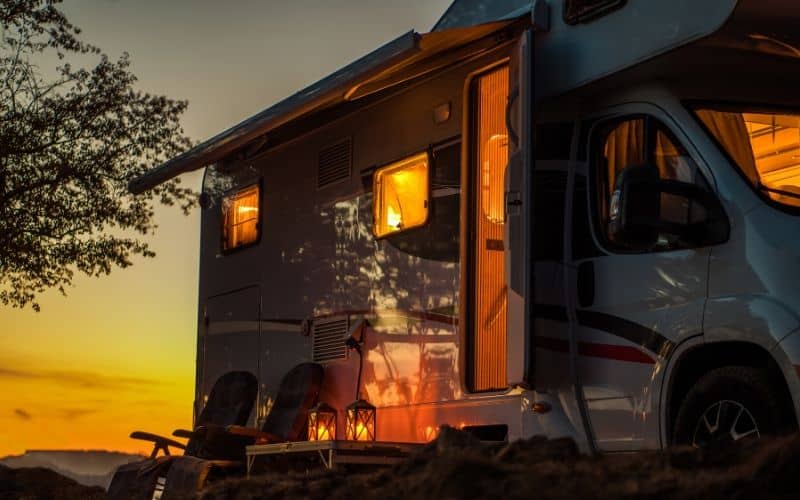

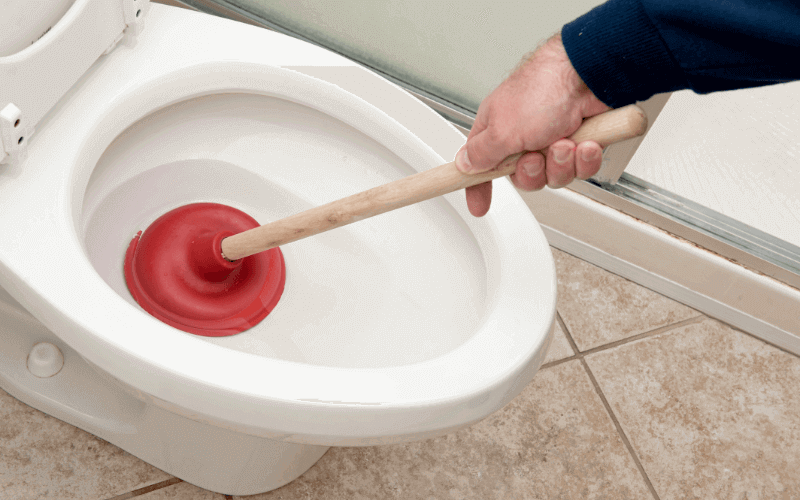
1 Comment
Steve Johnson
10 months agoThere are no states that make it illegal to dump gray water on the ground, they only make it illegal to do so without a permit. If you have a permit, they’ll happily let you pour as much dirty water into the ground as you please. The proof of this lie with septic tanks. All residential septic tanks have to have a permit issued by the county or city. Septic tanks are designed to let solids fall to the bottom and water to flow out through a drainage pipe. That pipe leads to the ground where this water seeps into the aquifer, albeit filtered by soil. That water, of course, contains bacteria from the solids. If millions of homes across the rural countryside are allowed to do this legally, then obviously it is not a health issue.
The reason why the USFS, NPS, ACOE, USBR, and USFWS all ban the practice of dumping gray water, sewage, and other liquid waste on to the ground is because they don’t want it flowing into bodies of water where swimmers and boaters tend to recreate. It’s not enough for these agencies to simply ban dumping next to a body of water because they can’t trust campers to follow the rules.
Even though the BLM makes an exception for “wash water”, they also have a rule that allows state and local laws to apply to their lands. Hence, technically, it is still illegal to dump gray water on BLM lands, assuming the state has included gray water into its definition of raw sewage.